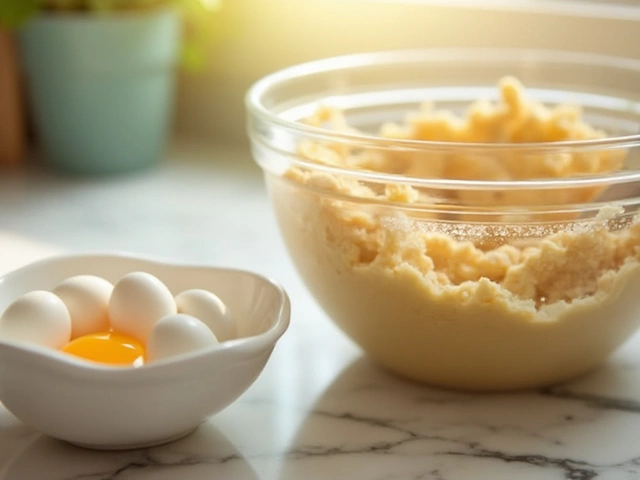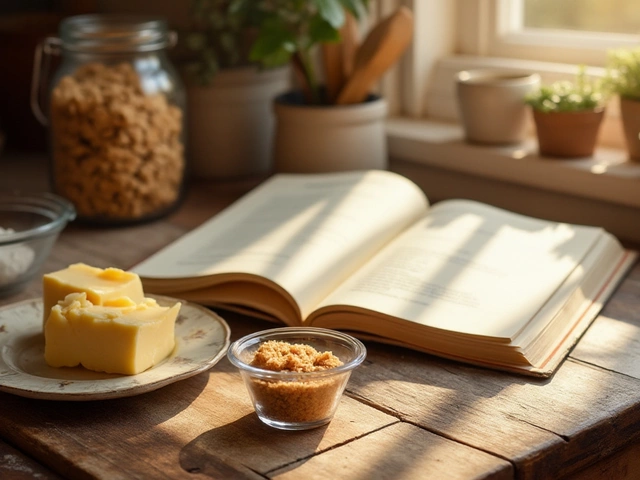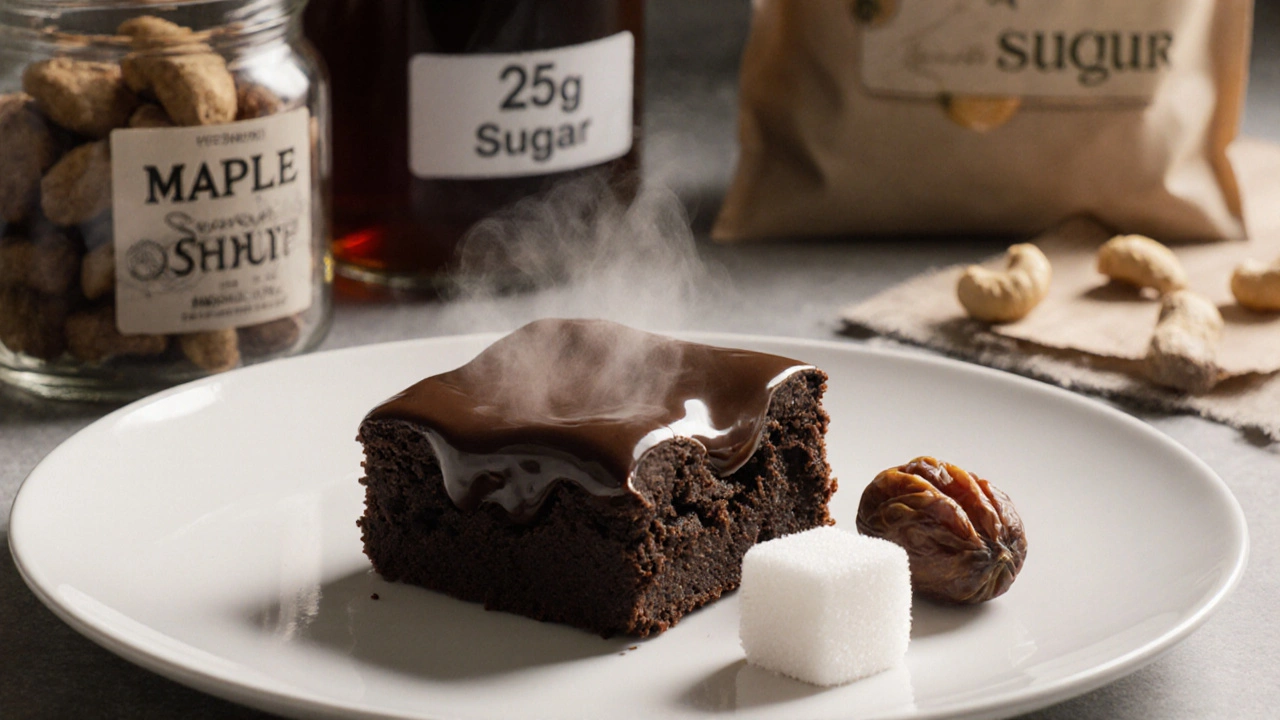
Vegan Dessert Sugar Calculator
How Much Sugar Are You Eating?
Discover the sugar content in your favorite vegan desserts and compare it to daily recommended limits.
Sugar Content Analysis
Daily Limit: The American Heart Association recommends no more than 25g (women) or 36g (men) of added sugar per day.
People choose vegan desserts for many reasons-animal welfare, environmental concerns, or health goals. But here’s the thing: not all vegan desserts are healthy. Just because something doesn’t contain milk or eggs doesn’t mean it’s good for you. In fact, many store-bought or even homemade vegan desserts are loaded with sugar, refined oils, and processed ingredients that can do more harm than good.
High Sugar Content Is the Biggest Issue
Vegan desserts often replace dairy with sweetened plant milks like coconut or oat milk, and egg binders with maple syrup, agave, or date paste. These might sound natural, but they’re still concentrated sources of sugar. A single vegan brownie can have 25 grams of sugar-almost as much as a candy bar. The body doesn’t care if the sugar comes from dates or cane sugar; it still spikes insulin, promotes fat storage, and crashes your energy later.
In Brighton, I’ve seen people switch to vegan desserts thinking they’re making a healthier choice, only to feel more sluggish and hungrier by mid-afternoon. That’s not a win. Whole-food vegan desserts made with fruit and nuts are fine. But most recipes-and all commercial ones-rely on sugar to mimic the texture and sweetness of traditional desserts. You’re trading one problem for another.
Processed Ingredients You Won’t Find in Your Kitchen
Look at the ingredient list on a vegan chocolate cake from the supermarket. You’ll likely see things like carrageenan, xanthan gum, soy protein isolate, and refined coconut oil. These aren’t foods. They’re industrial additives used to replicate the mouthfeel of butter and cream. Carrageenan, for example, is linked to gut inflammation in some studies. Soy protein isolate is heavily processed and stripped of most nutrients.
Even some "clean label" vegan brands use these ingredients because they’re cheap and shelf-stable. If you can’t pronounce it, it probably shouldn’t be in your dessert. Real food doesn’t need a chemistry degree to understand.
Nutritional Gaps Are Common
Vegan desserts rarely provide meaningful nutrition. They don’t contain vitamin B12, heme iron, or complete proteins-nutrients that are hard to get from plants alone. If you’re eating vegan desserts regularly, you might be replacing nutrient-dense foods with empty calories.
Think about it: a slice of vegan cheesecake made with cashews and coconut cream gives you fat and sugar, but almost no protein, zinc, or calcium compared to a dairy version. And even if it’s fortified with calcium, the form used-calcium carbonate-isn’t as easily absorbed as the calcium in milk. Over time, relying on vegan desserts as treats can contribute to deficiencies, especially if your overall diet isn’t well planned.
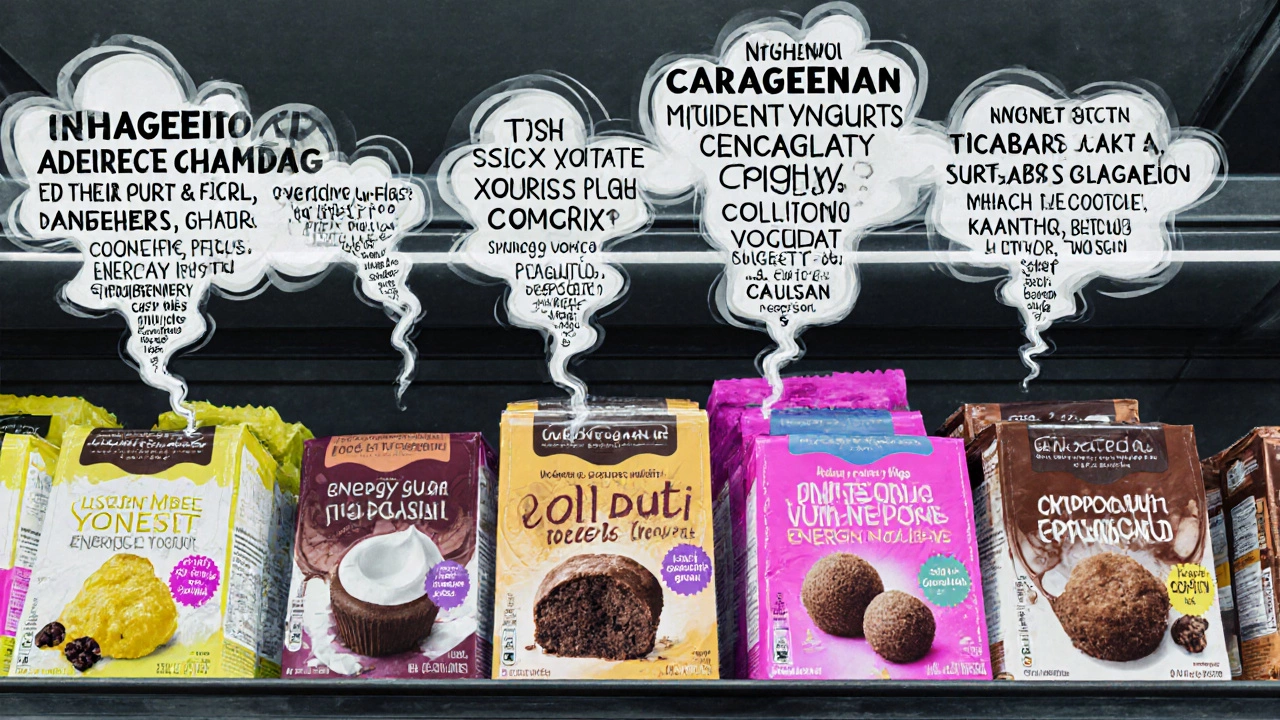
They Can Trigger Cravings and Binge Eating
Here’s something no one talks about: vegan desserts often make cravings worse. Why? Because they’re designed to mimic the exact experience of eating dairy or egg-based sweets. That means they trigger the same reward pathways in your brain. You’re not breaking the habit-you’re just swapping ingredients.
People who quit sugar entirely report fewer cravings after a few weeks. But those who switch to vegan versions often find themselves reaching for them daily, thinking, "It’s vegan, so it’s okay." That mindset leads to overeating. You’re not healing your relationship with food-you’re just rebranding the problem.
Cost and Accessibility Are Hidden Drawbacks
Vegan desserts are often more expensive. Almond milk costs twice as much as cow’s milk. Cashew cream? That’s $12 a pound. Specialty vegan chocolate? Even more. If you’re buying pre-made vegan treats, you’re paying a premium for ingredients that aren’t necessarily better for you.
And in smaller towns or areas with limited grocery options, finding vegan dessert ingredients can be a challenge. You might end up ordering online, paying shipping fees, or settling for low-quality alternatives. That’s not sustainable for most people.
Environmental Claims Don’t Always Add Up
Many assume vegan desserts are automatically better for the planet. But that’s not always true. Almond milk requires over 1,000 liters of water per liter produced. Palm oil-common in vegan butter and chocolate-is linked to deforestation. Soy production, even when organic, contributes to soil degradation in some regions.
And let’s not forget the carbon footprint of shipping specialty ingredients across the globe. A vegan dessert made with imported cashews, coconut oil from Thailand, and fair-trade cocoa from Ghana might have a higher environmental cost than a locally made dairy dessert using British cream and sugar beet.
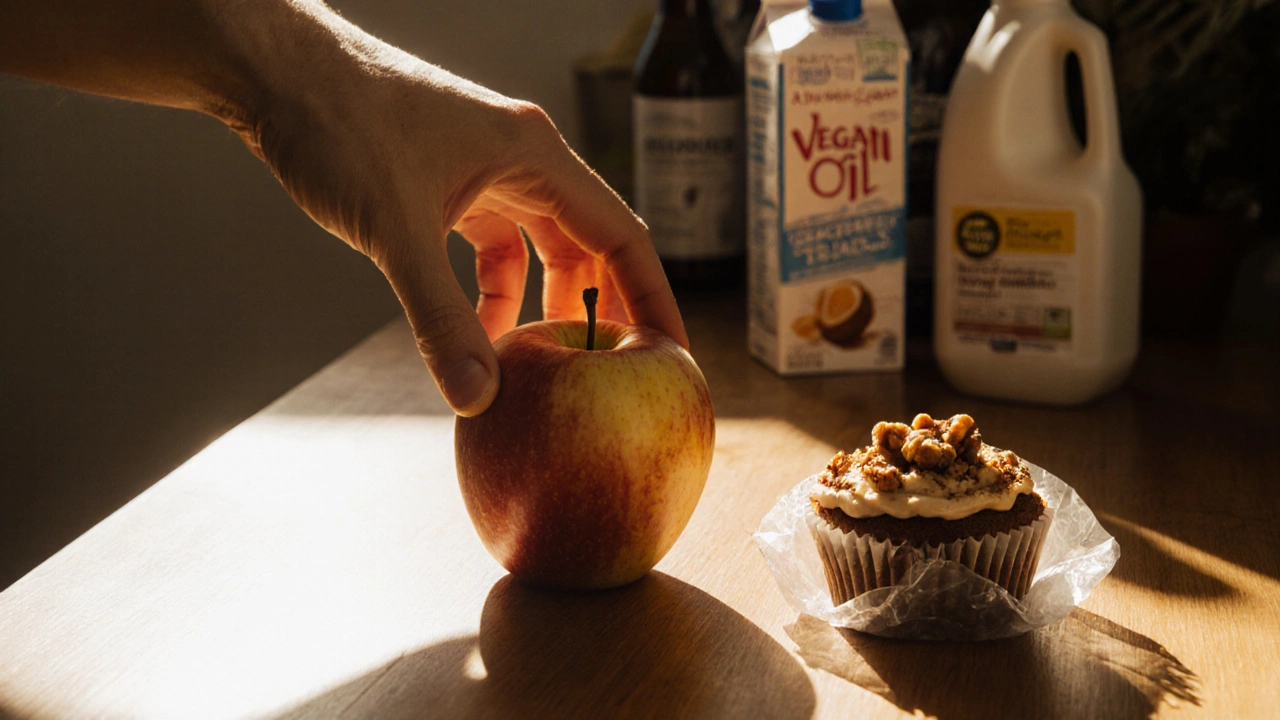
Not All Vegan Desserts Are Created Equal
This isn’t a blanket condemnation. There are healthy vegan desserts out there. A bowl of chilled mango and coconut yogurt with chia seeds? That’s nutrition. Baked apples with cinnamon and walnuts? Perfect. A date-sweetened energy ball made with oats and almonds? Great snack.
The problem isn’t veganism-it’s the industrialization of vegan food. When you treat vegan desserts like they’re a health food, you miss the point. They’re treats. And like any treat, they should be occasional, not everyday.
What Should You Do Instead?
If you want to enjoy desserts without the downsides, try this:
- Focus on whole-food, minimally processed options: fruit, nuts, seeds, dark chocolate (70%+ cocoa)
- Use natural sweeteners sparingly-maple syrup or honey once a week, not daily
- Make your own so you control the ingredients
- Don’t replace dairy desserts with vegan ones-replace them with something simpler, like yogurt with berries
- Ask yourself: "Would I eat this if it weren’t vegan?" If the answer is no, maybe skip it
The goal isn’t to avoid vegan desserts forever. It’s to stop pretending they’re a health solution. Treat them like dessert-something to savor, not something to justify.
Are vegan desserts better for weight loss?
Not necessarily. Many vegan desserts are high in sugar and calories, just like traditional ones. Weight loss depends on total calorie intake and food quality, not whether something is labeled vegan. A vegan cupcake still has the same sugar content as a regular one.
Do vegan desserts lack protein?
Most do. Vegan desserts made with nuts, seeds, or soy can have some protein, but they’re not a reliable source. A typical vegan brownie has less than 3 grams of protein per serving. Compare that to a small piece of cheese or a hard-boiled egg, and you’ll see the gap.
Is agave syrup healthier than sugar in vegan desserts?
No. Agave syrup is mostly fructose-sometimes more than high-fructose corn syrup. Fructose is processed by the liver and can contribute to fatty liver disease and insulin resistance when consumed in large amounts. It’s not a healthier alternative.
Can vegan desserts cause digestive issues?
Yes. Ingredients like xanthan gum, carrageenan, and excessive amounts of legume-based flours (like chickpea or lentil flour) can cause bloating, gas, or stomach discomfort in sensitive people. Even coconut milk can trigger issues if consumed in large quantities.
Are homemade vegan desserts always better?
Not always. Homemade versions can still be loaded with sugar, oil, and refined flours. The difference is you have control. You can reduce sugar, use whole ingredients, and avoid additives-but you still need to make intentional choices.
Final Thought: Treats Are Treats
At the end of the day, dessert is dessert. Whether it’s made with cream or cashews, it’s meant to be enjoyed, not eaten daily. The healthiest vegan dessert is the one you eat once in a while-made with real ingredients, without guilt, and without pretending it’s a superfood.

